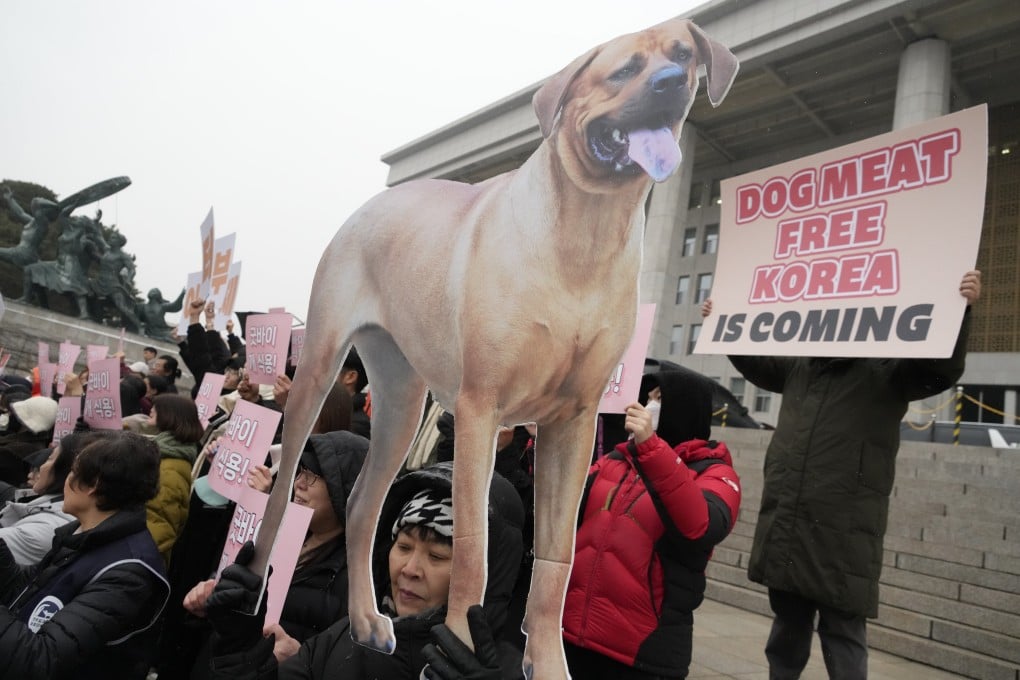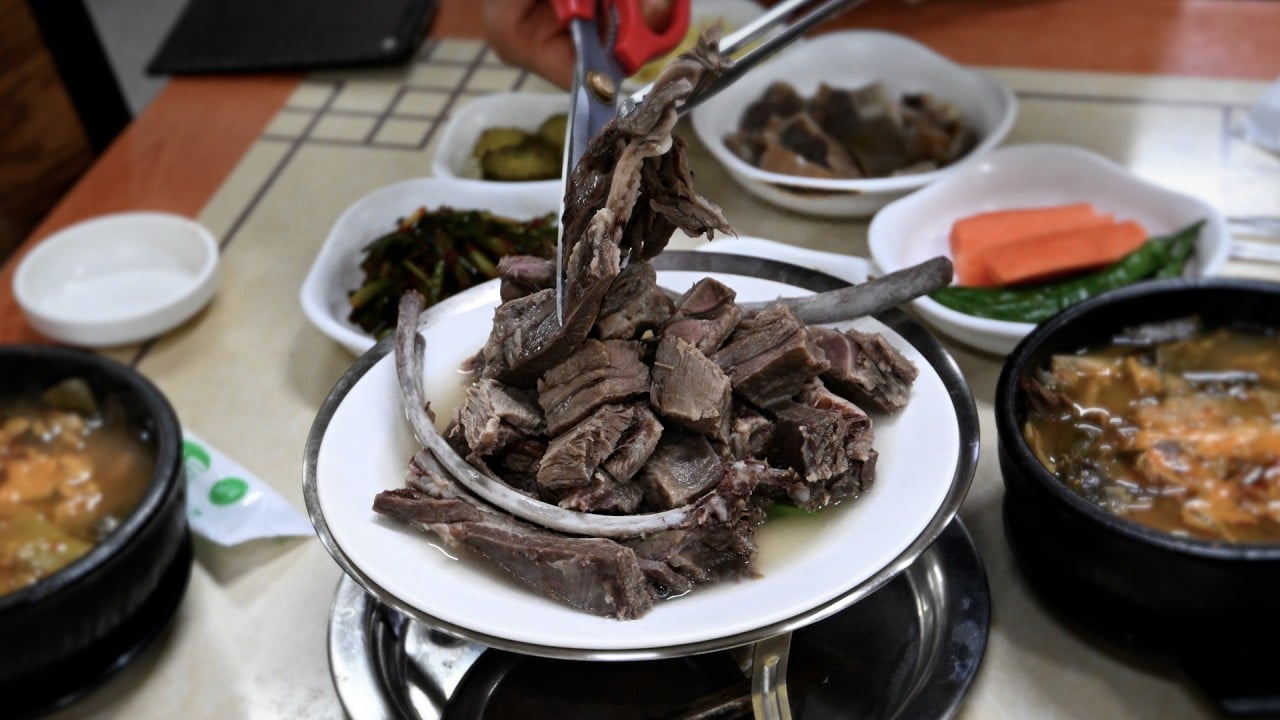Advertisement
Opinion | South Korea’s dog meat ban a signal to China to follow suit
- The passing of a bill banning the breeding, slaughter and sale of dogs for meat is a big achievement given heavy industry opposition
- This success should inspire China to examine its own tolerance of dog meat sales as a similar ban could improve the country’s soft power and help safeguard law and order
Reading Time:3 minutes
Why you can trust SCMP
13

On January 9, South Korea’s National Assembly adopted a special bill outlawing the breeding, slaughter and sale of dogs for human consumption. The vote was historic.
Advertisement
It started a three-year grace period for South Korea’s dog farmers, slaughter operators and dog meat restaurant owners to transition to alternative livelihoods with government compensation and assistance. When the law takes effect in 2027, acts that violate it could result in a jail term of up to three years and a fine of 30 million won (US$23,000).
The adoption of the bill was no small accomplishment. By the end of 2023, some 1,150 farms had raised 2 million “meat dogs”, supplying the country’s 1,600 restaurants. For decades, domestic and international voices have persistently called for the trade to be outlawed. The country’s dog meat traders have faced and survived waves of domestic and international pressure that started with the 1988 Seoul Summer Olympic Games.
While the renewed pressure during the 2018 Pyeongchang Winter Olympics seemed to be the last straw, Korea’s dog meat traders stood defiant. For decades, international criticism was rejected as Western cultural bias against Korean tradition. Helping the trader’s “cultural tradition” claim was the uncertain legal status of dogs and dog meat.
In 2023, when multiple bills against the dog meat trade were introduced, the traders organised what turned out to be their last-ditch effort to turn back the tide of history. They staged a protest before the presidential palace and threatened to set free all the “meat dogs”.
The January 9 vote will have an effect beyond South Korea. It might not, in the immediate future, trigger a similar act in North Korea, but the move will certainly send shock waves across Southeast Asia where dog meat sales remain buoyant in several countries. As the world’s largest dog meat market, mainland China has come to a crossroads and should take a serious look at its dog meat sales.
Advertisement

Advertisement

